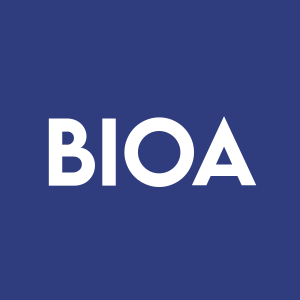Leqembi® (lecanemab) launched in China
Rhea-AI Summary
BioArctic AB's partner Eisai has announced the launch of Leqembi® (lecanemab) in China on June 28, 2024. Approved in January 2024 for treating mild cognitive impairment (MCI) and mild dementia due to Alzheimer's disease (AD), Leqembi is now available in the United States, Japan, and China. Eisai estimates there are 17 million early AD patients in China. The drug will be available in the private market with a 200 mg vial priced at CNY 2,508. A specialized healthcare insurance plan partially covering the drug cost has been introduced. Leqembi, which reduces amyloid-beta (Aβ) plaques in the brain, is the first treatment shown to slow disease progression. BioArctic will receive milestone payments and a 9% royalty on global sales, with plans to commercialize the drug in the Nordic region pending European approval.
Positive
- Leqembi launched in China, third country after the US and Japan.
- 17 million estimated early AD patients in China.
- 200 mg vial priced at CNY 2,508.
- Healthcare insurance plan launched for partial drug cost coverage.
- Leqembi reduces amyloid-beta plaques, slowing disease progression.
- BioArctic to receive milestone payments and 9% royalty on global sales.
- Plans for joint commercialization in the Nordic region pending European approval.
Negative
- None.
News Market Reaction 1 Alert
On the day this news was published, BIOA gained 11350.90%, reflecting a significant positive market reaction.
Data tracked by StockTitan Argus on the day of publication.
Eisai estimates there are 17 million patients with MCI or mild dementia due to AD (collectively referred to as early AD) in
In
Leqembi selectively binds to soluble amyloid-beta (Aβ) aggregates (protofibrils[1]), as well as insoluble Aβ aggregates (fibrils) which are a major component of Aβ plaques in AD, thereby reducing both Aβ protofibrils and Aβ plaques in the brain. Leqembi is the world's first and only approved treatment shown to reduce the rate of disease progression and to slow cognitive and functional decline through this mechanism.
Leqembi is the result of a long-standing collaboration between BioArctic and Eisai, and the antibody was originally developed by BioArctic based on the work of Professor Lars Lannfelt and his discovery of the Arctic mutation in Alzheimer's disease. Eisai is responsible for the clinical development, applications for market approval and commercialization of Lecanemab for Alzheimer's disease. BioArctic has no development costs for Leqembi in Alzheimer's disease and is entitled to payments in connection with certain regulatory approvals, and sales milestones as well as royalty of 9 percent on global sales. In addition, BioArctic has the right to commercialize Leqembi in the Nordic region, pending European approval, and currently Eisai and BioArctic are preparing for a joint commercialization in the region.
This information is information that BioArctic AB (publ) is obliged to disclose pursuant to the EU Market Abuse Regulation. The information was released for public disclosure, through the agency of the contact persons below, on June 28, 2024, at 01.30 a.m. CET.
For further information, please contact:
Oskar Bosson, VP Communications and IR
E-mail: oskar.bosson@bioarctic.com
Phone: +46 70 410 71 80
Jiang Millington, Director Corporate Communication and Social Media
E-mail: jiang.millington@bioarctic.com
Phone: +46 79 33 99 166
About lecanemab (generic name, brand name: Leqembi®)
Lecanemab (Leqembi) is the result of a strategic research alliance between BioArctic and Eisai. It is a humanized immunoglobulin gamma 1 (IgG1) monoclonal antibody directed against aggregated soluble (protofibril) and insoluble forms of amyloid-beta (Aβ). Lecanemab is approved in the
U.S. : For the treatment of Alzheimer's disease (AD). It should be initiated in patients with mild cognitive impairment or mild dementia stage of disease. See full US prescribing information including boxed waring.Japan : For slowing progression of mild cognitive impairment (MCI) and mild dementia due to AD.China : For the treatment of MCI due to AD and mild AD dementia.South Korea : For treatment in adult patients with mild cognitive impairment due to Alzheimer's disease (AD) or mild AD (early AD)
Lecanemab approvals were based on the large global Phase 3 Clarity AD study. In the Clarity AD study, lecanemab met its primary endpoint and all key secondary endpoints with statistically significant results. In November 2022, the results of the Clarity AD study were presented at the 2022 Clinical Trials on Alzheimer's Disease (CTAD) conference, and simultaneously published in the New England Journal of Medicine, a peer-reviewed medical journal.
Eisai has also submitted applications for approval of lecanemab in 14 countries and regions, including the European Union (EU). A supplemental Biologics License Application (sBLA) for intravenous maintenance dosing was submitted to the
Since July 2020 Eisai's Phase 3 clinical study (AHEAD 3-45) for individuals with preclinical AD, meaning they are clinically normal and have intermediate or elevated levels of amyloid in their brains, is ongoing. AHEAD 3-45 is conducted as a public-private partnership between the Alzheimer's Clinical Trial Consortium that provides the infrastructure for academic clinical trials in AD and related dementias in the
About the collaboration between BioArctic and Eisai
Since 2005, BioArctic has a long-term collaboration with Eisai regarding the development and commercialization of drugs for the treatment of Alzheimer's disease. The most important agreements are the Development and Commercialization Agreement for the lecanemab antibody, which was signed 2007, and the Development and Commercialization agreement for the antibody Leqembi back-up for Alzheimer's disease, which was signed 2015. In 2014, Eisai and Biogen entered into a joint development and commercialization agreement for lecanemab. Eisai is responsible for the clinical development, application for market approval and commercialization of the products for Alzheimer's disease. BioArctic has the right to commercialize lecanemab in the Nordic region under certain conditions and is currently preparing for commercialization in the Nordics together with Eisai. BioArctic has no development costs for lecanemab in Alzheimer's disease and is entitled to payments in connection with regulatory approvals, and sales milestones as well as royalties on global sales.
About BioArctic AB
BioArctic AB (publ) is a Swedish research-based biopharma company focusing on innovative treatments that can delay or stop the progression of neurodegenerative diseases. The company invented Leqembi® (lecanemab) – the world's first drug proven to slow the progression of the disease and reduce cognitive impairment in early Alzheimer's disease. Leqembi has been developed together with BioArctic's partner Eisai, who are responsible for regulatory interactions and commercialization globally. In addition to Leqembi, BioArctic has a broad research portfolio with antibodies against Parkinson's disease and ALS as well as additional projects against Alzheimer's disease. Several of the projects utilize the company's proprietary BrainTransporter™ technology, which has the potential to actively transport antibodies across the blood-brain barrier to enhance the efficacy of the treatment. BioArctic's B share (BIOA B) is listed on Nasdaq Stockholm Large Cap. For further information, please visit www.bioarctic.com.
[1] Protofibrils are believed to contribute to the brain injury that occurs with AD and are considered to be the most toxic form of Aβ, having a primary role in the cognitive decline associated with this progressive, debilitating condition. Protofibrils cause injury to neurons in the brain, which in turn, can negatively impact cognitive function via multiple mechanisms, not only increasing the development of insoluble Aβ plaques but also increasing direct damage to brain cell membranes and the connections that transmit signals between nerve cells or nerve cells and other cells. It is believed the reduction of protofibrils may prevent the progression of AD by reducing damage to neurons in the brain and cognitive dysfunction.
This information was brought to you by Cision http://news.cision.com
https://news.cision.com/bioarctic/r/leqembi---lecanemab--launched-in-china,c4008198
The following files are available for download:
Leqembi® (lecanemab) launched in |
![]() View original content:https://www.prnewswire.com/news-releases/leqembi-lecanemab-launched-in-china-302185340.html
View original content:https://www.prnewswire.com/news-releases/leqembi-lecanemab-launched-in-china-302185340.html
SOURCE BioArctic







